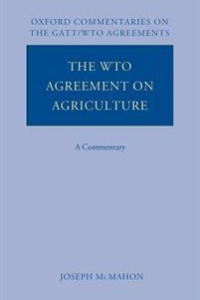
Liknande böcker
Government Procurement in the WTO
Bok av Sue Arrowsmith
In the World Trade Organization regime, government procurement is largely excluded from the multilateral agreements. The "plurilateral" WTO Agreement on Government Procurement, with its challenging accession procedures and limited number of signatories, cannot be said to succeed in its efforts to liberalize this area of trade activity - more than 10 per cent of gross domestic product in most countries. This study investigates the special sensitivities of government procurement that have left major trade barriers intact despite the WTO mandate that has proven so effective in other areas. Professor Arrowsmith examines the following crucial factors in depth: why and how procurement practices create barriers to trade; the institutional structure for dealing with government procurement in the GATT/WTO system; the impact of relevant WTO law on national legal systems; the types of contracts and entities covered in the Agreement on Government Procurement; how the National Treatment principle and the Most Favored Nation obligation affect government procurement; rules of WTO contract award procedure and the controversy over their interpretation and revision; the free trade versus social and environmental issues question in the context of government procurement; and the monitoring and enforcement of WTO procurement rules. Throughout the presentation the author focuses on specific issues to illuminate the overall pattern of her legal analysis. For example, practical questions stemming from such activities as multi-phase tendering and electronic procurement are raised for special scrutiny. The legal literature of the WTO and its jurisprudence are frequently brought into Professor Arrowsmith's arguments.







